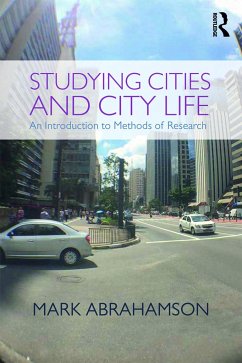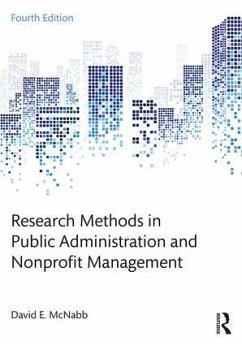
Criminological Skills and Research for Beginners
A Student's Guide
Versandkostenfrei!
Versandfertig in 1-2 Wochen
83,99 €
inkl. MwSt.
Weitere Ausgaben:

PAYBACK Punkte
42 °P sammeln!
Criminological Skills and Research for Beginners, Third Edition, is a comprehensive and engaging guide to research methods in Criminology, and the skills required for academic success.














